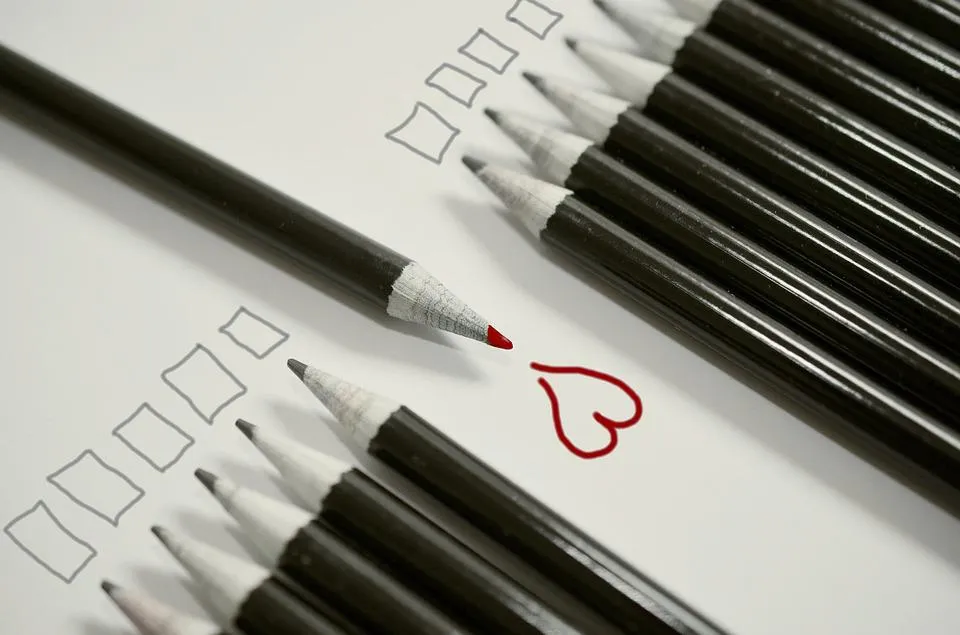“El exceso de severidad produce odio, como el exceso de indulgencia debilita la autoridad.”
Saadi - poeta iraní
En los últimos días he estado reflexionando sobre algo en mi personalidad y carácter. Desde niño fui criado con dos figuras de autoridad opuestas. Mi hermana mayor (me lleva 11 años): una muchacha estricta, imponente, normativa y exigente y mi mamá: una mujer respetuosa, pasiva, condecendiente y consentidora. Aunque no lo parezca, esto fue un cóctel peligroso.
Luego de leer algunos artículos sobre el tema de personas con problemas de autoridad, noto que, por un lado el que mi hermana haya sido estricta y autoritaria, causó en mi una rebeldía contra las personas así (en realidad contra cualquier figura de autoridad). Por otro lado, la complacencia de mi madre y la libertad quer me daba, me permitió crecer creyendo que podía hacer lo que quisiera y ser independiente.
En ocasiones, conversamos y ellas me dicen que de niño fui muy desafiante e independiente. No me gustaba que me dieran órdenes y más si sabía lo que debía hacer. Formaba berrinches y tenía ataques de ira, y aunque nunca fui violento, si tenía (¿tengo?) mucha rabia acumulada que siempre buscaba la forma de salir a flote de alguna manera. Como pueden ver, mi inteligencia emocional era nula. Siempre fui libre de expresar lo que sentía de la manera que quisiera. No soy de armar escándalos en público, pero definitivamente no puedo disimular mis emociones: alegría, tristeza, enojo o aburrimiento. Mi rostro será un poema elocuente que emitirá lo que pienso y siento en ese momento.
Trastorno de Desafío y Oposición
Leyendo y leyendo, queriendo buscar explicación a esta manera de ser, de la que no me siento muy orgulloso, por cierto; me encuentro con este término que intenta explicar el comportamiento que presentan algunos niños con problemas de autoridad. Resulta que los síntomas de este trastorno son los siguientes:
- Rabietas frecuentes.
- Discutir excesivamente con los adultos.
- Desafío activo y negación a cumplir con lo que los adultos le piden que haga y a las reglas.
- Intentos deliberados de molestar y fastidiar a la gente.
- Culpar a otros por sus propios errores y mal comportamiento.
- A menudo ponerse quisquilloso o enfadarse fácilmente con otros.
- Irritación frecuente y resentimiento.
- Usar palabras hirientes y odiosas cuando está alterado
- Buscar vengarse.
Tomado textualmente de: "Niños con el Trastorno de Desafío y Oposición"

¿Cuáles de esos comportamientos presento?
- Rabietas frecuentes. Irritarme y discutir con mucha frecuencia es parte de mi día a día. A veces ni yo mismo me soportp. Saquen sus conclusiones.
- Molestar a otros. Hacer cosas con el afán de desafiar e incomodar.
- Ponerme quisquilloso y necio.
- Usar palabras hirientes cuando estoy molesto. Esta costumbre, ya no está tan presente. Tengo que estar en extremo alterado para llegar a ofender con alevosía. Puede que lo piense, pero no lo diré.
- Buscar vengarse. De niño era muy vengativo. ¡Mucho! Crecer en una familia y fraternidad cristiana, me permitió ir cambiando este defecto. Hoy no soy vengativo, pero no olvido una ofensa o enojo y si puedo señalárselo a la persona en algún momento determinado, lo haré con el objetivo de que sepa que "me alegro" de que algo le haya pasado.
- Siempre cuestiono las reglas. Me gusta desafiar las normas y por ende a las personas de autoridad. De hecho, mientras más poderosos sean o crean que sean (esos últimos son los que más me gusta molestar), mejor para mi. No en balde soy apolítico, antireligioso, no me vacuné contra el COVID-19, no soy empleado y me gusta trollear (incomodar) a quien pretenda imponer normas absurdas, solo porque le nace del fondo de su corazón.
- Hablar con dureza o poco amable. Mi tono de voz tiende a ser autoritario, firme y áspero. Me ha costado regular eso, pero lo he logrado. Pero, a mi pesar y de quienes me rodean, sale a flote con más frecuencia de la que me gustaría.
Un descubrimiento no muy agradable
Resulta que este de Trastorno de Desafío y Oposición, es propio de niños o adolescentes. Claro está, si un niño no es orientado para moderar esta manera de actuar, de adulto es probable que presente problemas de autoridad. Pero lo que noto es que casi todos los síntomas los presento, por lo que con sorpresa me doy cuenta que básicamente estoy presentando un trastorno infantil, ergo, soy un niño. Así de sencillo y sin filtros condecendientes hacia mí mismo.
Podemos concluir que no he madurado emocionalmente y esto me ha traído, me trae y seguirá trayendo consecuencias sino hago algo urgente para superar esto. Porque una cosa es que yo me sienta muy "chingón", como dicen los mexicanos y muy orgulloso de ser un tipo que no se deja amilanar por nada o nadie, pero no se imaginan las consecuencias personales, profesionales, sentimentales, financieras y demás, que me ha traído ser o comportarme así. De eso, les escribiré o hablaré en otro post. Porque esto pica y se extiende.
“Prácticamente, se puede considerar anarquista a todo individuo que, a causa de su temperamento o de una reflexión seria y consciente, repudia toda autoridad o coerción externa, sea de orden gubernamental, ético, intelectual o económico.”
Émile Armand - filósofo francés
Enlaces que recomiendo:

"Too much severity produces hatred, as too much leniency weakens authority."
Saadi - Iranian poet.
In the last few days I have been reflecting on something in my personality and character. Since I was a child I was raised with two opposing authority figures. My older sister (11 years older than me): a strict, imposing, normative and demanding girl and my mom: a respectful, passive, condescending and spoiling woman. Believe it or not, this was a dangerous cocktail.
After reading some articles on the subject of people with authority problems, I notice that, on the one hand, my sister's being strict and authoritarian caused me to rebel against people like that (actually against any authority figure). On the other hand, my mother's complacency and the freedom she gave me, allowed me to grow up believing that I could do what I wanted and be independent.
Sometimes we talk and they tell me that as a child I was very defiant and independent. I didn't like to be ordered around, especially if I knew what I was supposed to do. I would throw tantrums and have fits of anger, and although I was never violent, I did have (have?) a lot of pent-up anger that I was always looking for a way to get out in some way. As you can see, my emotional intelligence was nil. I was always free to express what I felt any way I wanted. I'm not one to make a fuss in public, but I definitely can't disguise my emotions: joy, sadness, anger or boredom. My face will be an eloquent poem that will emit what I think and feel at that moment.
Challenging and Oppositional Disorder.
Reading and reading, wanting to find an explanation for this way of being, of which I am not very proud, by the way; I come across this term that tries to explain the behavior presented by some children with authority problems. It turns out that the symptoms of this disorder are the following:
- Frequent tantrums.
- Excessive arguing with adults.
- Active defiance and refusal to comply with what adults ask them to do and to follow rules.
- Deliberate attempts to annoy and tease people.
- Blaming others for own mistakes and misbehavior.
- Often getting fussy or easily angered by others.
- Frequent irritation and resentment.
- Using hurtful and hateful words when upset.
- Seeking revenge.
Taken verbatim from: "Children with Oppositional Defiance Disorder"

Which of these behaviors do I exhibit?
- Frequent irritations and arguments are part of my everyday life. Sometimes I can't even stand it myself. Draw your own conclusions.
- Annoying others. Doing things in an effort to challenge and make them uncomfortable.
- Getting fussy and foolish.
- Using hurtful words when I'm upset. *This habit is no longer as present. I have to be extremely upset to offend with malice aforethought. I may think it, but I won't say it.
- Seeking revenge. I was very vindictive as a child. Very! Growing up in a Christian family and fraternity allowed me to change this defect. Today I am not vindictive, but I do not forget an offense or anger and if I can point it out to the person at any given time, I will do so with the goal of letting them know that I am "glad" that something happened to them.
- I always question the rules. I like to challenge the rules and therefore people in authority. In fact, the more powerful they are or think they are (the latter are the ones I like to pick on the most), the better for me. Not for nothing am I apolitical, anti-religious, not vaccinated against COVID-19, not an employee and I like to check (discomfort) whoever pretends to impose absurd rules, just because it comes from the bottom of his heart.
- My tone of voice tends to be authoritarian, firm and harsh. It has been hard for me to regulate that, but I have succeeded. But, to my regret and to the regret of those around me, it comes out more often than I would like.
A not very pleasant discovery
It turns out that this of Defiance and Opposition Disorder, is typical of children or adolescents. Of course, if a child is not guided to moderate this way of acting, as an adult he/she is likely to present authority problems. But what I notice is that I present almost all the symptoms, so with surprise I realize that basically I am presenting a child disorder, ergo, I am a child. Just like that and without condecending filters towards myself.
We can conclude that I have not matured emotionally and this has brought me, brings me and will continue to bring consequences if I don't do something urgent to overcome this. Because one thing is that I feel very "chingón", as Mexicans say and very proud of being a guy who does not let anyone or anything intimidate him, but you cannot imagine the personal, professional, sentimental, financial and other consequences that being or behaving like this has brought me. I will write or talk about that in another post. Because this itches and spreads.
"Practically, any individual may be considered an anarchist who, because of his temperament or because of serious and conscious reflection, repudiates all external authority or coercion, whether of a governmental, ethical, intellectual or economic order."
Émile Armand - French philosopher.
Links I recommend: (in spanish)
Translated with www.DeepL.com/Translator (free version)
Posted using Proof of Brain


